- Home
- Keith Douglass
Seal Team Seven 01 - Seal Team Seven
Seal Team Seven 01 - Seal Team Seven Read online
SEAL TEAM SEVEN by Keith Douglass
Berkley Publishing Company New York Copyright (C 1994 by The Berkley Publishing Group All rights reserved.
This book may not be reproduced in whole or in part, by mimeograph or any other means, without permission. For information address The Berkley Publishing Group, 200 Madison Avenue, New York, New York 10016.
ISBN 0-425-14340-6
A Berkley Book published by arrangement with the authors
PRINTING HISTORY Berkley edition / August 1994
SEAL TEAM SEVEN logo illustration by Michael Racz.
Berkley Books are published by The Berkley Publishing Group, 200 Madison Avenue, New York, New York 10016.
BERKLEY and the "B" design are trademarks belonging to the Berkley Publishing Corporation.
Printed in the United States of America
If you purchased this book without a cover, you should be aware that this book is stolen property. It was reported as "unsold and destroyed" to the publisher, and neither the author nor the publisher has received any payment for this "stripped book."
Also by Keith Douglass
THE CARRIER SERIES
Carrier Viper Strike Armageddon Mode Flame-Out Maelstrom Countdown
THE SEAL TEAM SEVEN SERIES
Seal Team Seven Specter Nucflash
FOREWORD
Created by Presidential order in 1962, the U.S. Navy SEAL (SEa-Air-Land) Teams are today among the foremost elite special-operations forces in the world. During the war in Vietnam there were two Teams, SEAL One and SEAL Two, each composed of a number of fourteen-man platoons, the basic SEAL operational element.
During the 1980s, the Reagan Administration recognized that the changing face of modern warfare demanded a greater emphasis on special forces and covert operations, and the Teams were expanded accordingly. By 1990, the number of Teams had grown to seven. SEAL Teams One, Three, and Five were headquartered at Coronado, California, under the auspices of Naval Special Warfare Group One, for deployment to the Pacific and the Far East. SEAL Teams Two, Four, and Eight were located at Little Creek, Virginia, under NAVSPECWARGRU-Two for deployment to the Caribbean, the Mediterranean, and the Middle East. SEAL Six, commissioned in November 1980 as the Navy's covert anti-terrorist unit, was listed under NAVSPECWARGRU-Two for administrative purposes only; in practice it answered directly to the U.S. Special Operations Command--which includes the Army's Delta Force and the Air Force's First and Seventh Special Operations Squadrons--and to the Joint Chiefs of Staff.
For reasons of both security and politics, the SEALs' TO undergoes periodic revision. As of this date and to the best of the author's knowledge, however, SEAL Team Seven is completely fictitious. It was the author's decision to employ a fictional unit in order to show as many of the missions and activities of modern SEALs as possible, including operations that in real life might have been undertaken by Group One, Group Two, or SEAL Six.
Keith DOUGLASS August 1993
PROLOGUE
0945 hours Freighter Yuduki Maru Cherbourg Harbor, France
A blast from the freighter's horn sounded across the water, momentarily drowning the shrill calls of circling sea gulls as the 7,600-ton freighter began her ponderous acceleration toward the open sea. Echoes bounced back from Cherbourg's waterfront, mingled with the thunder of noise from an angry crowd.
Ashore, beyond the chain-link fence separating Cherbourg's military port facilities from the civilian docks, a thin line of troopers drawn from the French Gendarmerie Nationale faced a sea of protestors, who answered the ship's horn with a wild, drawn-out wail of noise. Placards danced above shouting, angry faces; fists punched the sky in time to chanted slogans.
Near the military base's main gate, a scuffle broke out between police and the mob.
Tetsuo Kurebayashi leaned against the railing on Yuduki Maru's starboard side, a ghost of a smile tugging at his normally impassive face. International Greenpeace had made Yuduki Maru and her sister ships the focus of a whirlwind of controversy. The publicity of her departure from France would ensure plenty of attention from a watching world later, once Yoake-Go, Operation Dawn, was fully under way.
Kurebayashi was fourth officer of the Yuduki Maru, but his first loyalty was not to the ship, nor to the company that owned and operated her, nor even to Captain Koga. As he turned from the railing, he caught the eye of Shigeru Yoshitomi, a deck division cargo handler, and he gave the man a slight nod, an exchange unnoticed by their shipmates nearby. Though of mutually alien social classes, both men were Ohtori, and brothers in blood.
In the harbor, less than one hundred meters off the Yuduki Maru's starboard beam, a two-masted sailing ketch, a gleaming, white-hulled, rich man's toy, matched the freighter's slow pace. A banner had been unfurled on the yacht's port side, bearing legends in French, English, and Japanese BAN THE SHIPMENTs and GREENPEACE. Yuduki Maru's escort, the sleek cutter Shikishima, was already moving up to position herself between the freighter and the Greenpeace yacht. According to the news stories Kurebayashi had heard while he was in France, the yacht, a forty-meter motor sailer named Beluga, was to be Yuduki Maru's watchdog for the entire length of her voyage from Cherbourg to Japan, following in her wake and making certain the freighter did not break the international agreements that had shaped her planned course.
Kurebayashi smiled again at the thought. Only a handful of men aboard the Japanese freighter knew it, of course, but the Yuduki Maru would not be completing her voyage to the home islands.
Excitement quickened within. All of his training, all of his dedication to the Cause, all of his long-bottled desire to strike back at the hated American imperialists, would soon find outlet in action, and in purpose.
Soon, the Ohtori commando thought. Only three more weeks ...
Tuesday, 3 May
2245 hours (Zulu +3) Hawr al-Hammar, Iraq
A shadow against shadows, the black-hooded form silently broke the water's surface scant meters from the indistinct shoreline where lake gave way to marsh. The commando had removed his face mask underwater to avoid telltale reflections. For long seconds, he remained motionless in the water, eyes alone moving in his heavily blacked-out face.
Nothing. The wind whispered through the forest of marsh grass ahead, where unseen hordes of nameless creatures chirped and kee-ked and buzzed, undisturbed by the intruder. A crescent moon had set an hour before; the only light came from a dazzling spill of stars overhead and from a faint glow against the southeastern sky.
Moving gently to avoid making even the slightest splash, the figure pressed forward, swim fins seeking leverage in knee-deep muck, elbows braced across the black canvas of a gear flotation bag clutched to his chest like a swim board, gloved hands tight on his sound-suppressed subgun, an HK MP5SD3. His movements against the bottom stirred the mud, which bubbled to the surface as an oily scum and a ripple of dull, sulfur-heavy plops. The stench--petroleum, decay, and the rotten-eggs stink of hydrogen sulfide--was thick enough to bring tears to the eyes, but the swimmer ignored it, sliding through the mud toward the cover of the marsh.
A stroll in the park. He'd waded through worse than this plenty of times before in Florida, Panama, and Virginia's Great Dismal Swamp.
Gradually, the deep, clinging muck thinned beneath his fins, rising to meet the ill-defined shore. Among the clumps of reeds and marsh grass, he found what passed for solid ground--a water-logged patch of tangled roots and mud inches above the lap-lap-lap of the surface of the lake. Silently, with a precise and practiced economy of motion, the black figure removed his swim fins, which were strapped on over his combat boots. Next, he unzipped the waterproof satchel and began breaking out various pieces of equipment
. AN/PVS-7 night-vision goggles slipped over his face. The pound-and-a-half device transformed darkness to flat, green-lit day and gave him the surreal aspect of some alien, half-mechanical creature. For a full five minutes, the figure crouched at the edge of the swamp, scanning his surroundings through the NVGs, listening to the night noises and the steady lapping of the water.
Still nothing. Good.
Switching off the night goggles and sliding them up on his head, he broke out a GPS receiver and flipped up the plastic-housed antenna on the side. Thumbing the button marked POS, he studied the cryptic line of alphanumerics displayed on the instrument's small, lighted screen, then nodded satisfaction. Outstanding! Dead on target to within twenty meters, and that after an underwater swim of almost three klicks!
Pivoting on his heels, the figure aimed a finger-sized pencil flash toward the lake and squeezed it--once, twice ... pause ... a third time--the red glow too dim to be seen more than a few dozen meters across the water. In silent response, almost magically, other dripping, night-clad figures began rising from the sheltering water where they'd been awaiting the signal. Each man was outfitted like the first, in black fatigues, rebreather gear, and numerous waterproof pouches and rucksacks hooked to load-bearing harnesses; each too sported subtle distinctions of garb and equipment. One carried the waterproof backpack that housed the squad's HST-4 sat-comm gear and KY-57 encoder. Another was already unshipping the long-barreled deadliness of an M-60E3, the lightweight version of the machine gun with an auxiliary front pistol grip mounted between the legs of its bipod. A third pulled the mud plug from the suppressor barrel of his HK MP5.
In all, six more men joined the first at the swamp's edge. Two donned NVGs and slipped away into the reeds, providing security for the other five as they broke out the rest of their gear.
Blue Squad, Third Platoon, SEAL Team Seven, had arrived, armed and ready for war.
1455 hours (Zulu -5) Meeting of the House Military Affairs Committee Capitol Building, Washington, D.C.
"The name SEALS," Captain Granger explained, sitting alone at the long table and reading from his notes, "is an acronym standing for 'Sea, Air, Land' and symbolizes the three elements the teams infiltrate through in pursuit of their mission objectives. The first two teams were formed in January of 1962, at the order of President John F Kennedy. Their commission called on them to operate up to twenty miles inland, serving as naval commandos with the express missions of gathering intelligence, raiding, capturing prisoners, and generally raising havoc behind enemy lines."
Opposite Granger's table, the members of the House Military Affairs Committee sat listening or spoke together in low-voiced murmurs. There were cameras in the room as well. These hearings were being reported by CNN and C-SPAN, and much of the speech-making and posturing was for their benefit.
"Their baptism of fire came in Vietnam," Granger continued, "where they served with distinction. Between 1965 and 1972, forty-nine Naval Special Warfare personnel were killed in action in Vietnam. During this same period, naval records credit SEAL direct-action platoons with over one thousand confirmed kills and nearly eight hundred probables, as well as close to another thousand enemy personnel taken prisoner. Three SEALs won the Navy Medal of Honor during the Vietnam conflict, while five SEALs and two UDT frogmen won the Navy Cross. Immediately after the war-"
"Ah, Captain Granger." Congressman Rodney Farnum, head of the House Military Affairs Committee, leaned closer to his microphone. "If I may interrupt."
"Yes, Mr. Chairman?"
"The House Military Affairs Committee is second to none in its, ah, deep admiration for members of America's special-warfare community, and we recognize their significant contributions to this nation's defense in the past. However, as the purpose of this special meeting is to review future funding levels for the Navy's special-warfare needs, and since several of the congressmen on this panel have commitments elsewhere this afternoon, perhaps it would be helpful if we could limit the session this afternoon to the present and to the, ah, future in the near term."
"As you wish, Mr. Chairman. I thought an overall background might be useful."
"I think we're all adequately familiar with the subject. Are there objections from my distinguished colleagues at the table? No? Then perhaps we could cut straight to the chase in this matter, Captain Granger. Let us begin by hearing your views on the necessity for maintaining an expensive and force-redundant unit like the U.S. Navy SEALs in this modern, post-Cold War era."
2301 hours (Zulu +3) Hawr al-Hammar, Iraq
Chief Machinist's Mate Tom Roselli, the SEAL squad's point man and the first one ashore, donned his communications headset, fitting the earpiece snugly inside his left ear and securing it beneath his knit cap. The wire ran down the back of his neck and through a slit in his black fatigue shirt, where it plugged into the Motorola unit secured to his combat harness. The filament mike rested below his lower lip. He touched the transmit key and tapped lightly twice. A moment later, he heard an answering tsk-tsk through his earpiece as the squad's CO replied. Radio check okay.
Excitement burned, burned in Roselli's veins like liquid fire. He was pumped, he was psyched, he was ready to kick ass and take names. This was it, the real thing, the combat mission he'd been training endlessly for throughout his seven years as a U.S. Navy SEAL. He'd been on combat ops before, during the Gulf War, but never one like this.
Less than an hour earlier, Chief Roselli and thirteen other hard, combat-ready men, each shouldering over one hundred pounds of equipment, had stepped into darkness thirty thousand feet above southern Iraq. Silently, they'd fallen through the thin, cold air over the Hawr al-Hammar, a long and meandering, swamp-bordered lake that stretched for sixty miles along the lower reaches of the Euphrates River, from An Nasiriya to where the Euphrates joined the Tigris just above the city of al-Basra. Opening their steerable, parasail chutes at eight thousand feet, they'd glided for miles above the silent waters, splashing at last into the eastern end of the lake. From there, the fourteen men, one SEAL platoon organized into two seven-man squads, had made their way to the southern shore.
Roselli was with Blue Squad, six enlisted men under the platoon's CO, Lieutenant Vincent Cotter. Gold Squad, if all had gone according to plan, should be forming up separately about a mile further to the west.
By 2310 hours, the squad was ready to travel, its high-altitude breathing equipment and swimming gear wrapped up and stashed at the water's edge, the men rigged out in their first- and second-line CQB rigs. Lieutenant Cotter lightly touched Roselli's shoulder. You're on point. Roselli nodded, pulled his NVGs back down over his face, and started off, taking the lead.
They moved south, wading through mud and silt that gradually thinned beneath their boots until they were pressing ahead across firm, almost-dry ground, their passage screened by the dense sea of man-high reeds that stretched away endlessly into the darkness on all sides. They spaced themselves at five-meter intervals. Next in line after Roselli was Master Chief George MacKenzie, a long-legged, man-mountain Texan big enough to hump the squad's sixty-gun and carry an MP5SD3 slung over his shoulder as well. The number-two man was also the squad's navigator, checking compass and GPS frequently to keep the team on course. Cotter, the L-T, walked the number-three slot, and behind him came Electrician's Mate Second Class Bill Higgins, the team's commo man. Slot five was walked by the squad's medic, Hospital Corpsman Second Class James Ellsworth; inevitably, everyone just called him "Doc." The niceties of the Geneva Convention meant little to a SEAL team deep in enemy territory; Doc wore no red crosses and he packed an HK MP5SD3 like Roselli's, though his personal favorite for a primary weapon was a full-auto shotgun. Behind him, lugging an M-16/M203 combo, was Hull Technician first Class Juan Garcia, "Boomer," the squad's demo man. The tail gunner slot was occupied by Quartermaster First Class Martin "Magic" Brown, a black kid from inner-city Chicago whose expertise on the range with a Remington Model 700 had earned him a position as the squad's sniper.
Though e
ach man was a specialist, their training and their skills overlapped. Two of them, the man on point and the man bringing up the rear, wore NVGs at all times, while the rest relied on night-adapted, Mark-I eyeballs. They traded off those positions frequently, though, to prevent night-goggle-induced eye fatigue, so the only slots that remained unchanged throughout the hike were three and four, the CO and the commo man.
No words were exchanged between the members of the team. Communications were limited to hand signs, touch, and rare, non-vocalized clicks and cluckings over the technical radios. Mutual trust and coordination within the group were perfect, almost effortless. These men had worked, trained, slept, and practiced with one another for months, until each could sense the others' positions and movements even in total darkness.
Sometimes Roselli imagined he could even sense their thoughts.
At the moment, of course, he didn't need psychic powers to know what the others were thinking. Everyone was focused completely on the mission, and on their objective, now some ten kilometers to the South.
1515 hours (Zulu -5) Meeting of the House Military Affairs Committee Capitol Building, Washington, D.C.
Congressman Farnum leaned forward, one hand clutching the base of the microphone as he played to the cameras in the room. "But Captain Granger, isn't it true that these SEALS, these, ah, 'NAVSPECWAR' people, as you call them, isn't it true that they present the Navy with special administrative and discipline problems?"
"Of course, Mr. Chairman. As I'm sure there are similar administrative difficulties with other elite military forces."
"Ah. But is it not true, Captain, that there have been numerous incidents near SEAL bases involving disorderly conduct? Drunkenness? Sexual harassment of both civilians and female military personnel?"
"It's true, Mr. Chairman. There have been some incidents. But I should point out, Sir, that these are very special men, highly trained, dedicated, motivated to a degree I never would have dreamed possible before I saw them in action."
"That hardly excuses their actions, Captain Granger. Ah, you are not a SEAL yourself, are you?"

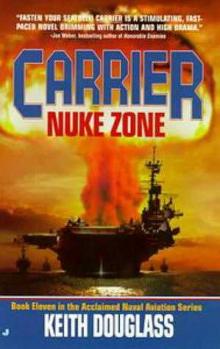 Nuke Zone c-11
Nuke Zone c-11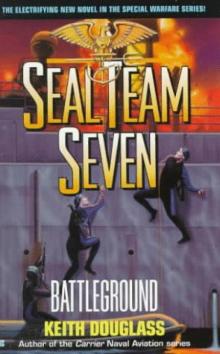 Seal Team Seven 6 - Battleground
Seal Team Seven 6 - Battleground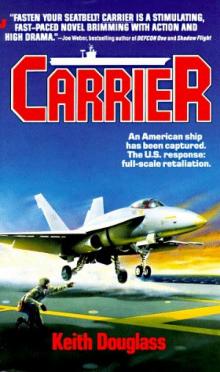 Carrier c-1
Carrier c-1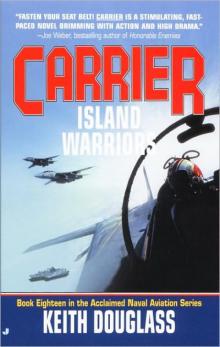 Island Warriors c-18
Island Warriors c-18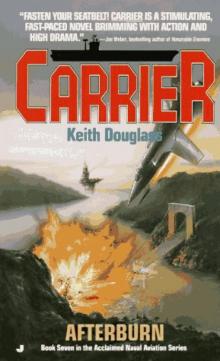 Afterburn c-7
Afterburn c-7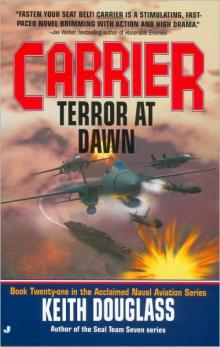 Terror At Dawn c-21
Terror At Dawn c-21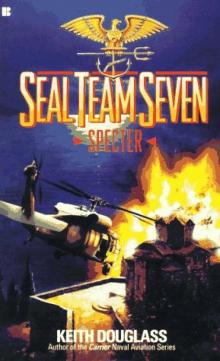 Specter sts-2
Specter sts-2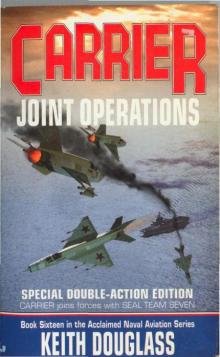 Joint Operations c-16
Joint Operations c-16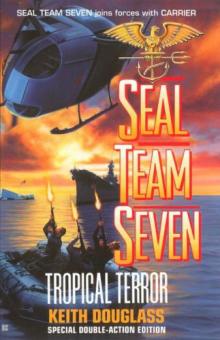 Tropical Terror sts-12
Tropical Terror sts-12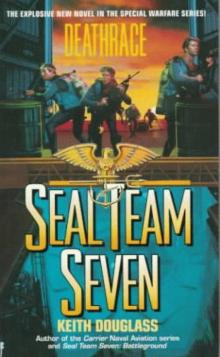 Seal Team Seven 7 - Deathrace
Seal Team Seven 7 - Deathrace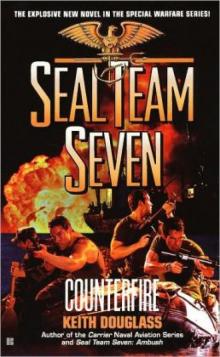 Counterfire sts-16
Counterfire sts-16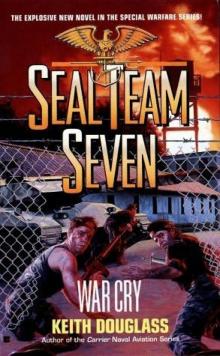 War Cry sts-9
War Cry sts-9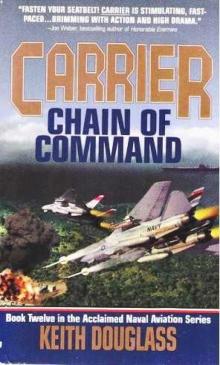 Chain of Command c-12
Chain of Command c-12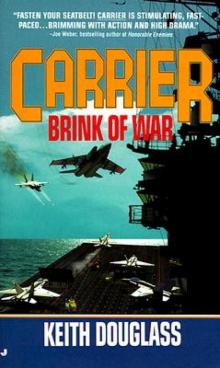 Brink of War c-13
Brink of War c-13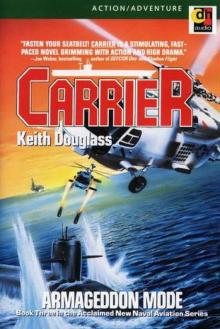 Armageddon Mode c-3
Armageddon Mode c-3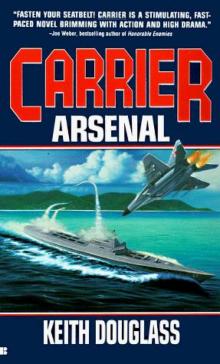 Arsenal c-10
Arsenal c-10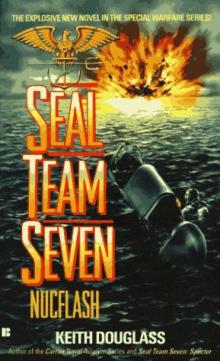 Nucflash sts-3
Nucflash sts-3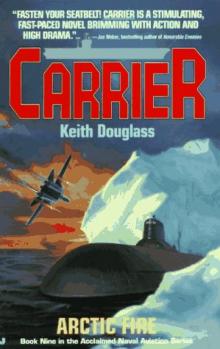 Arctic Fire c-9
Arctic Fire c-9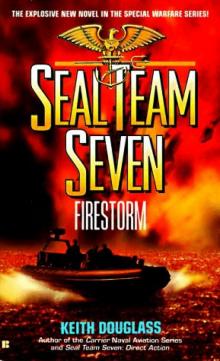 Firestorm sts-5
Firestorm sts-5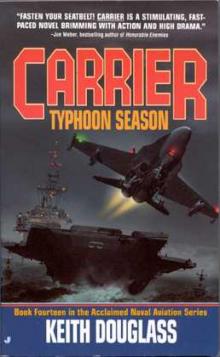 Typhoon Season c-14
Typhoon Season c-14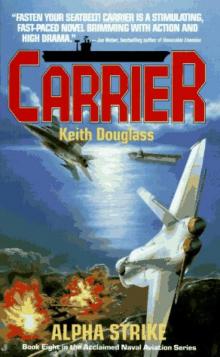 Alpha Strike c-8
Alpha Strike c-8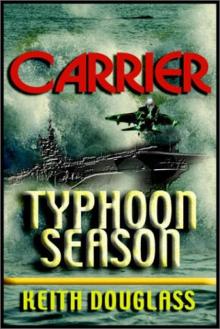 Carrier 14 - TYPHOON SEASON
Carrier 14 - TYPHOON SEASON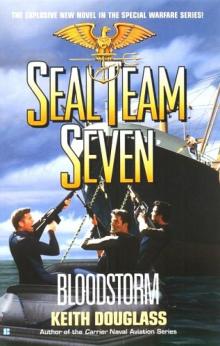 Bloodstorm sts-13
Bloodstorm sts-13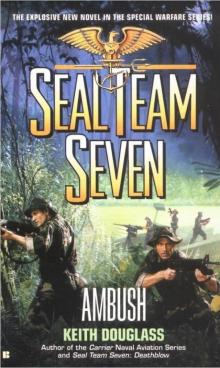 Ambush sts-15
Ambush sts-15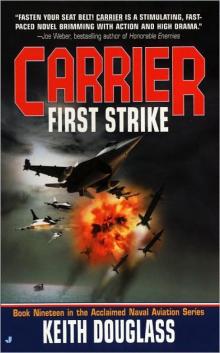 First Strike c-19
First Strike c-19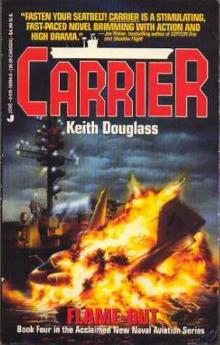 Flame Out c-4
Flame Out c-4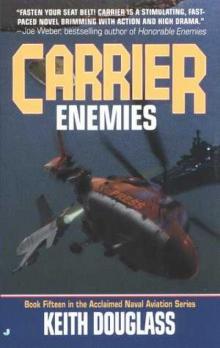 Enemies c-15
Enemies c-15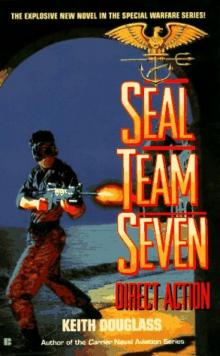 Seal Team Seven 04 - Direct Action
Seal Team Seven 04 - Direct Action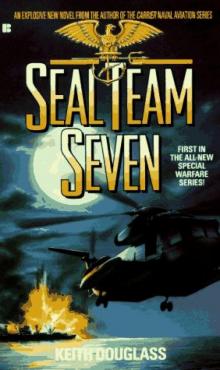 Seal Team Seven 01 - Seal Team Seven
Seal Team Seven 01 - Seal Team Seven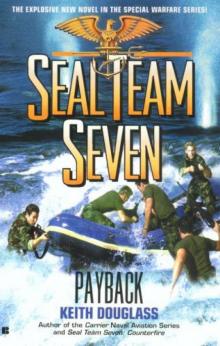 Payback sts-17
Payback sts-17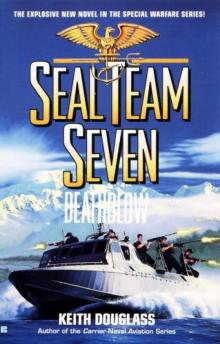 Death Blow sts-14
Death Blow sts-14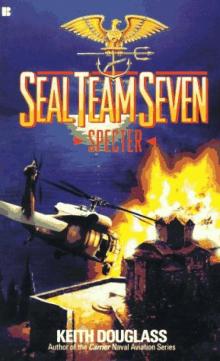 Seal Team Seven 02 - Spector
Seal Team Seven 02 - Spector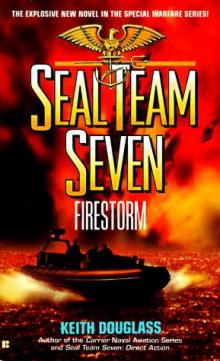 Seal Team Seven 5 - Firestorm
Seal Team Seven 5 - Firestorm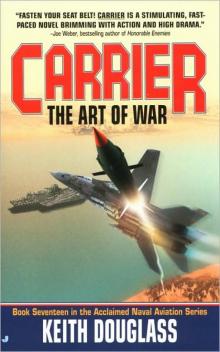 The Art of War c-17
The Art of War c-17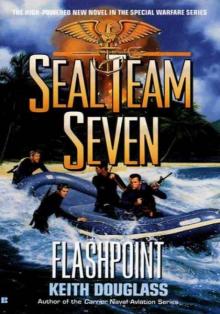 Flashpoint sts-11
Flashpoint sts-11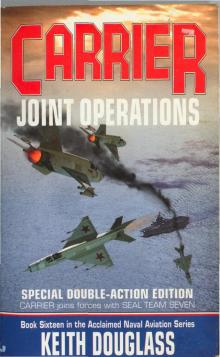 Carrier - Joint Operation Book 16
Carrier - Joint Operation Book 16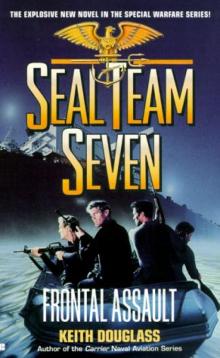 Frontal Assault sts-10
Frontal Assault sts-10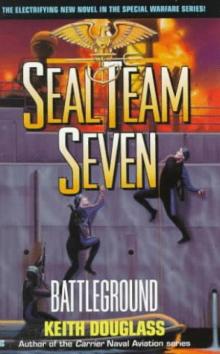 Battleground sts-6
Battleground sts-6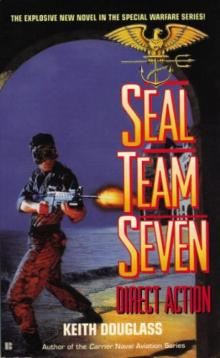 Direct Action sts-4
Direct Action sts-4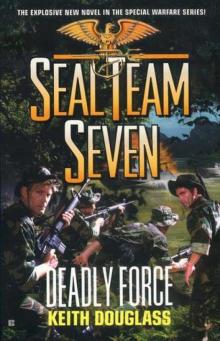 Deadly Force sts-18
Deadly Force sts-18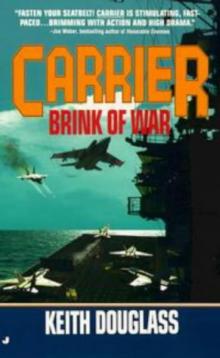 Carrier 13 - Brink of War
Carrier 13 - Brink of War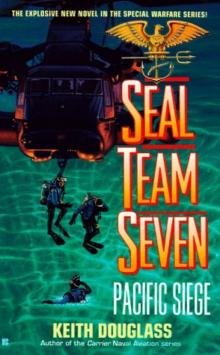 Pacific Siege sts-8
Pacific Siege sts-8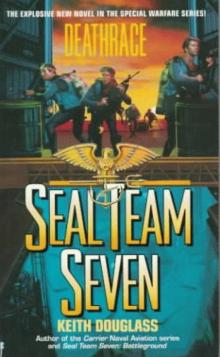 Deathrace sts-7
Deathrace sts-7